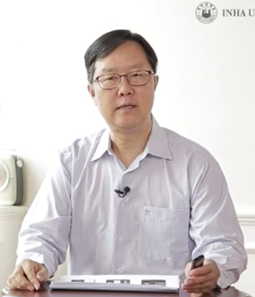
Cultural Psychology课程简介:前往报名学习
This course will provide an understanding of human psychology in cultural context.
播放:74次,课程ID:4231526
This course will provide an understanding of human psychology in cultural context.
--1.1. Development of psychology as sciences
--1.2.1. Wilhelm Wundt Establishment of psychology as sciences
--1.2.2. Wundts influence in social sciences and humanities
--1.3. Understanding Wundts science of psychology
--2.1. Wundts cultural psychology
--2.2.2. Subjective and objective reality
--3.1.1. Creativity and cultural transformation
--3.2.1. Understanding collective creativity as a basis of culture
--3.2.2. Source of energy and information
--3.3. Understanding how our brain works
--4.1. Hunting and gather societies and domestication
--4.2.1. Agricultural societies
--4.2.2. Lifestyle and agricultural societies
--4.3.1. The role of religion in shaping our beliefs and behavior
--4.3.2. Arab culture and Islam
--5.1.1. The role of philosophy in shaping our worldview
--5.2.1. Renaissance and scientific revolution
--5.2.2. Scientific revolution
--5.3.1. Industrialization urbanization and capitalism
--6.1.1. Definition of culture, cultural contact and acculturation
--6.1.2. Definition of culture and acculturation
--6.3.1. Socialization practices
--6.3.2. Parent-child relationship
--7.2.2. Development of the self
--8.1.1. Jung (情) : Deep affection and attachment
--8.1.2. Empirical study of jung (情)
--8.2.1. Conception of filial piety
--8.2.2. Empirical study of filial piety
--8.3.2. Interview Susumu Yamaguchi
--9.1.1. Academic achievement: International comparison
--9.1.2. Interview David Matsumoto
--9.2.1. Educational achievement in Korea
--9.2.2. Cross-sectional and longitudinal studies
--9.3.1. School violence and delinquency
--9.3.2. Interview Albert Bandura
--10.1.2 .Empirical studies of stress
--10.2.1. Han(恨) and Hwabyung (火病)
--10.3.1. Happiness and quality of life
--10.3.2. Can money buy happiness Empirical study
--11.1.1. Traditional Korean culture and economy
--11.1.2. Yi Dynasty (1392-1897)
--11.2.1. Organizational culture and behavior
--11.2.2. Interview Prof. Toshio Yamagishi
--11.3.1. Korean economic development and the role of jaebol (財閥) (1)
--11.3.2. Korean economic development and the role of jaebol (財閥) (2)
--12.1.1. Creativity, community and organizational development
--12.1.2. Interview Prof. Gerald Huther
--12.2.1. Samsung Electronics: Transformation and Growth
--12.2.2. Samsung in 2007 and beyond
--12.3.1. Creativity and innovation at Hynix Semiconductor
--12.3.2. Creativity and innovation at E-mart
--13.1.2. Interview Prof. Albert Bandura
--13.2.1. Organizational leadership
--13.2.2. Organizational leadership
--13.3.2. Organizational leadership and teamwork at Zappos
--14.1.1. Political culture, human rights and democracy
--14.1.2. Political culture, human rights and democracy II
--14.2.1. Trust, social capital and multiculturalism
--14.2.2. Interview Prof. John Berry
--14.3.1. Social change and global transformation
--14.3.2. Interview Prof. Albert Bandura

Kim教授是一位组织和文化心理学家,他在多伦多大学获得理学学士学位,在加拿大皇后大学获得硕士和博士学位。他曾在中央大学、东京大学和夏威夷大学马诺阿分校任教。他发表了200多篇文章和20多本书和专著,包括Individualism and collectivism(2003年)、Indigeous and cultural psychology(2006年)、Democracy, human right and Islam in modern Iran(与2003年诺贝尔和平奖获得者Shirin Ebadi合作)。